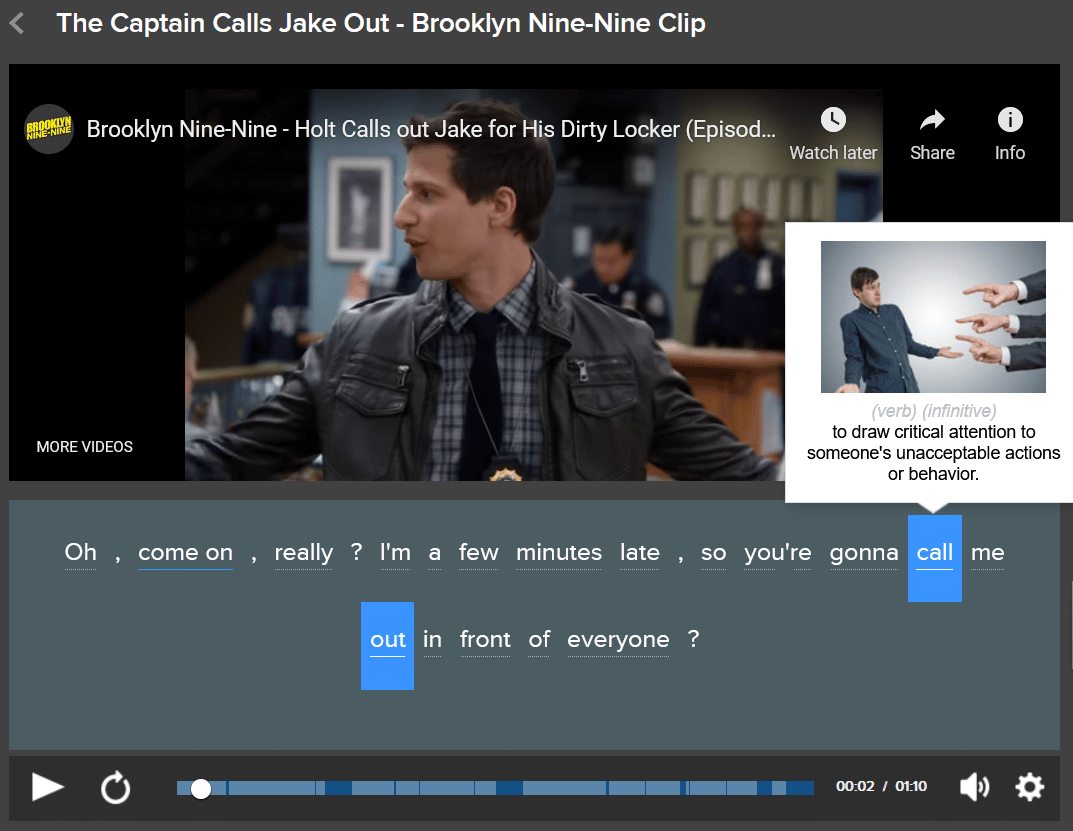
6 Tips for Teaching English to Teenagers
Teenagers can be a passionate, energetic group. They often want to succeed, even if it doesn’t outwardly look like it—especially if they’re hoping to land a job or go to school in an English-speaking environment in a few years.
As English teachers, our job is to channel their energy and potential into a love for language, and ideally, towards fluency.
In this post, I’ll show you three practical tips for doing just that.
Contents
- 1. Learn more about your students and their interests
- 2. Find topics that are relevant to their lives
- 3. Teach them to break grammar and classroom rules
- 4. Tap into social media trends
- 5. Organize peer group projects
- 6. Set up interactive storytelling sessions
Download: This blog post is available as a convenient and portable PDF that you can take anywhere. Click here to get a copy. (Download)
1. Learn more about your students and their interests
Start with getting to know your teenage students and learn more about their interests. You will have some shared interests, whether it’s music, TV, movies or Trump’s latest tweets.
One of my best students discovered “Grey’s Anatomy” at age 16 (as did I in 2005) and not only was I super impressed with her ability to keep up with everything that happens on that show, but it also gave me some great material to work with in class.
After some get-to-know-you conversations, you should be able to land on a few common interests. Now make those interests your inspiration for activities. For example:
- Use a favorite TV show to work on speaking and listening skills. First, mute a scene and have them improvise what’s being said in groups. This is also a great lead-in to talk about the importance of gestures when we communicate or the physical aspects of pronunciation.
Once you’ve had a laugh doing that, turn the sound on and have a listening activity prepared. Any surprises once they hear the real thing? Were they close in their interpretations?
You can also bring FluentU into the classroom for this. FluentU is an authentic-video-based learning program that has many videos that teens are sure to find engaging. For instance, you can show them a trailer from an Avengers movie or a clip from a beloved TV show. Each video has interactive subtitles that show on-demand contextual definitions so you can also send students home to learn with the program.
You can use the different types of clips on FluentU to talk about differences in how we communicate. Teens, in particular, understand what it means to code-switch and why it’s necessary. For example, compare a clip from a news segment with a clip from a vlog and talk about how and why the language used in both is different. They’ll be so engrossed in the conversation, they won’t even realize that they’re picking up on new vocabulary and grammar aspects naturally.
- Have them answer questions as if they were a certain character. We tend to use the same language when always talking about ourselves. Having to think from the perspective of some fictional character usually pushes them to be more creative with their answers and to use English vocabulary they probably wouldn’t otherwise.
I doubt they have the same life experience as Eleven from “Stranger Things”!
2. Find topics that are relevant to their lives
Early in my teaching career, I realized that the debates and scenarios in the book just didn’t cut it with teenagers. Their motivation and willingness to participate will be a direct result of your creativity and ability to adapt.
While teens often have an even more advanced level of English than adult students, when it comes to discussing current events or debating common issues, they struggle much more than older learners.
Sometimes they haven’t given it enough thought to have developed opinions yet, and sometimes they honestly just don’t care.
At their age, I’ve found conversation and debate topics need to cover something they have direct experience with. It’s hard for them to sustain the kinds of hypothetical debates we typically have in adult speaking lessons.
If you want to get them talking, engaging with one another and motivated to get their point of view across clearly, you have to learn as much as you can about them and what gets them fired up.
Here are a few tips to help you get started:
- Pay close attention to what they’re talking about as they walk into class. Show interest and learn more about it.
- Learn about university entrance requirements and (if you’re tutoring outside a school environment) their country’s high school curricula. (In my experience, this led to the most heated debate I’ve ever witnessed in a teen class.)
- All those common stereotypes about teenagers? Ask them how they feel about them.
Listen, learn and then gear debates and essays towards topics they’ll have an opinion about.
3. Teach them to break grammar and classroom rules
One of the most fascinating things about learning a language is learning what’s not in the books.
Language is constantly changing and that’s what makes it so interesting. Bringing English into the real world means throwing the rulebook out every now and then.
This is easy (and fun) to do when teaching English to teenagers because one of their biggest references to the English language is music.
Music is full of “incorrect” usage. I couldn’t begin to count the number of times I’ve been asked by students what “wanna” and “gonna” mean because they want to learn the lyrics to their favorite song.
One way to take advantage of this is to build lessons around music lyrics, whether it’s having them try to transcribe a song as you play it or giving them printed lyrics to parse out in small groups.
And students won’t just find grammar “mistakes” in music—they’ll hear people speak that way in real life, too.
Don’t be afraid to introduce some slang or colloquialisms when you want to shake your lessons up, and encourage students to ask you about non-standard English whenever they encounter it.
Now let’s talk about breaking class rules.
If they go off topic, let them run with it! At least for a few minutes. Give them a new phrase to express what they’re trying to say better (or to make that clever joke).
Same with cell phones. Don’t freak out about them using their phones. Set a policy that seems fair and encourage them to use them when it can support learning.
Meanwhile, integrating mobile technology into the classroom opens you up to tons of online material, apps, games and activities.
4. Tap into social media trends
Speaking of using the phones—encourage them to use social media and stay on top of the trends yourself! Teenagers are often active on various social media platforms, and these offer a goldmine of English learning opportunities.
Stay up to date with the latest trends on platforms like Instagram, TikTok, or Twitter. Challenge your students to analyze and discuss viral posts, memes, or trending topics in English.
Encourage them to create their content, such as writing captions, tweets, or short video scripts.
This not only keeps them engaged but also helps them develop their language skills in a context they’re passionate about. It’s also a fantastic way to connect language learning with their daily lives.
5. Organize peer group projects
Teens thrive on social interactions. Promote group projects that let them work collaboratively. Have them create and present projects that are not only language-focused but also tap into their interests.
For example, they can produce short films, podcasts, or blogs in English on topics they are passionate about.
That way your students can learn about teamwork, problem-solving skills, and effective communication, all while improving their English language abilities. It’s a win-win for you and your teenage students!
6. Set up interactive storytelling sessions
Who doesn’t love storytelling? And your teenage students love it too!
It’s an excellent way to improve their language skills.
Encourage them to participate in interactive storytelling sessions. Provide a prompt, and let them take turns building a story, contributing a sentence or two at a time.
This exercise enhances their creativity, vocabulary, and speaking skills. You can also incorporate elements of drama and improvisation to make it more exciting. That way you can get them talking and laughing while they learn!
Remember, teaching English to teenagers involves keeping their interest alive. Engaging activities and a genuine connection with their lives can turn your English class into an exciting adventure for both you and your students.
No doubt teaching English to teenagers has its unique challenges and differences when compared to young kids or adult learners, but I promise you: if you become the teacher that all the teenagers want to have class with, you’ll have a competitive advantage.
Teens want (and deserve) the same respect you want from them. Aim for that place of mutual respect, set high expectations while giving them their fair share of freedom and be creative in your choice of material and activities. It’ll be worth it.
Download: This blog post is available as a convenient and portable PDF that you can take anywhere. Click here to get a copy. (Download)



